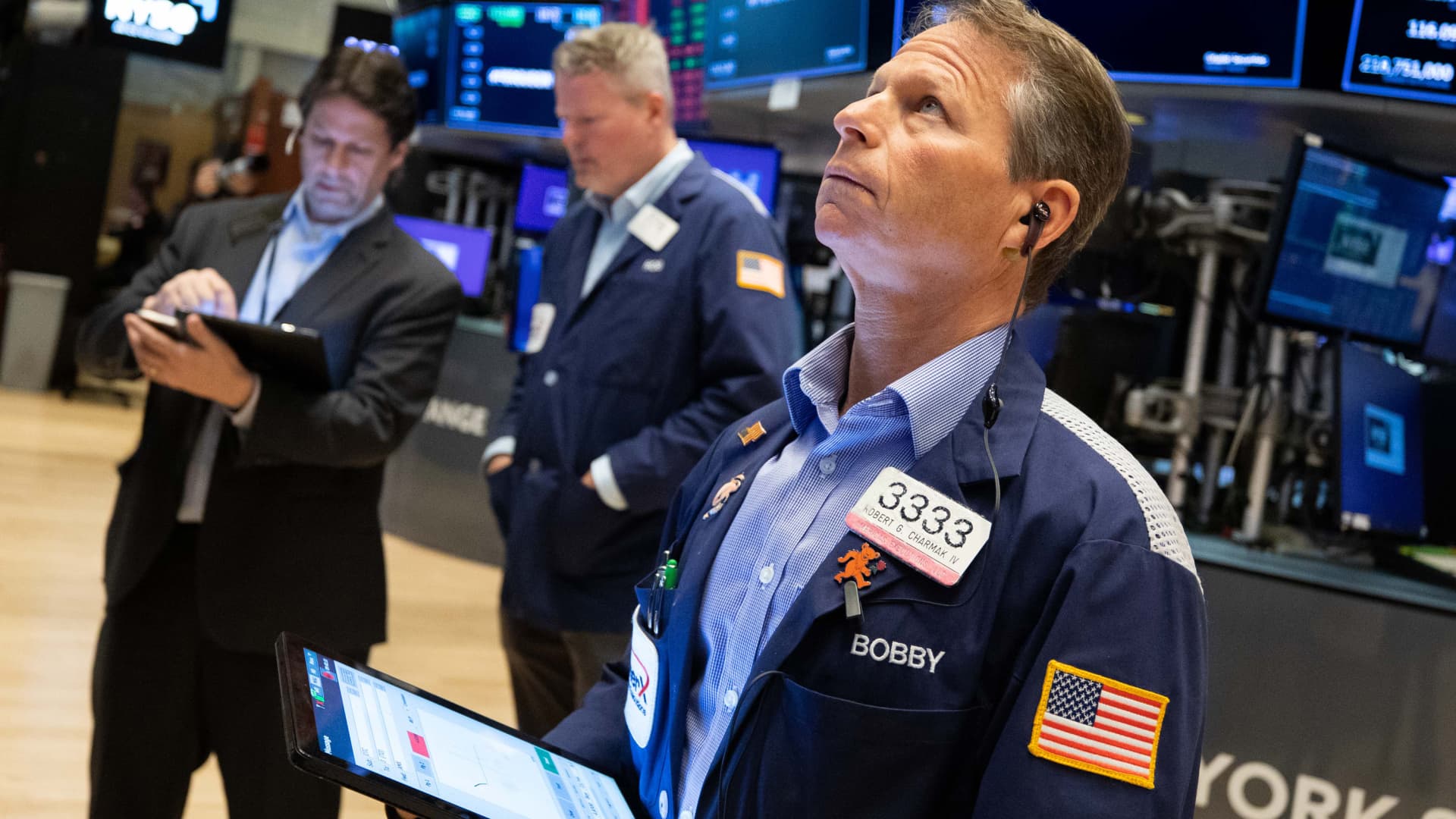Nasdaq surges 3% on Friday, but market is still headed for heavy losses this week
Stocks jumped Friday, as investors looked to steer the S&P 500 away from official bear market territory following a week of heavy losses.

Stocks jumped Friday, as investors looked to steer the S&P 500 away from official bear market territory following a week of sharp losses.
The Dow Jones Industrial Average rose 380 points, or 1.22%, as it looked to break a six-day losing streak, while the S&P 500 gained 2% and the Nasdaq Composite added 3.1%.
Despite those gains, the major averages were on track to post losses for the week. The Dow is down more than 2%, while the S&P 500 and Nasdaq have slipped about 3% and 4%, respectively.
"Just as trees don't climb to the sky, prices don't fall forever," said Sam Stovall, chief investment strategist at CFRA. "Even in corrections and approaching bear markets, they tend to experience relief rallies, which is what the markets appear to be starting today."
Most S&P 500 sectors moved higher on Friday led by gains in consumer discretionary and information technology. It was a broad-based comeback with about 90% of the S&P 500 in the green.
American Express, Boeing, and Salesforce rose about 4% each, leading the Dow higher.
Beaten-up tech stocks Apple and Nvidia also made a comeback, gaining 2.8% and 7.8%, respectively. Apple fell into its own bear market, becoming the last Big Tech name to succumb to the sell-off on Thursday.
Following strong gains in the previous session, heavily shorted meme stocks AMC Entertainment and GameStop popped 10.1% and 8.6%, respectively. Carvana ripped 7.8% higher.
Meanwhile, Twitter shares plunged 8.7% after Elon Musk announced a standstill in the takeover deal as he awaits more details on the platform's fake accounts. In other news, Robinhood popped 21% after crypto CEO Sam Bankman-Fried acquired a stake in the company.
The stock market has been slumping for months, starting with high-growth unprofitable tech stocks late last year and spreading to even companies with healthy cash flows stocks in recent weeks. The decline has wiped much of the rapid gains stocks enjoyed off their pandemic lows in March 2020.
"Large deviations from long-term price trends have been used for bubble identification. We find that US equities have been in a bubble based on this metric, and are now exiting it," Citi strategist Dirk Willer said in a note to clients on Thursday.
One reason that stocks have struggled in recent months is high inflation, and the Federal Reserve's attempts to contain prices by raising rates. Fed Chair Jerome Powell told NPR on Thursday that he couldn't guarantee a "soft landing" that brought down inflation without causing a recession.
Though stocks enjoyed a two-week rally after the Fed's first rate hike in March, those gains were quickly erased by a brutal April and the selling has continued in May. There are some signs, such as investor sentiment surveys and some stabilization in the Treasury market this week, that the market could be near, but many investors and strategists say the market may need to take another sizable step down.
"You're getting this market that really is begging for a bottom, for a relief rally. But, at the end of the day, there really hasn't been a capitulation day," said Andrew Smith, chief investment strategist at Delos Capital Advisors.
On the earnings front, Affirm shares soared 20% on the back of a better-than-expected earnings report.
Developments in cryptocurrencies have unnerved Wall Street this week, with bitcoin falling well below $30,000 and stablecoins struggling to hold their peg. Bitcoin bounced back above the mark on Friday.
On Thursday, the S&P 500 and Dow bounced off their intraday lows but still fell 0.1% and 0.3%, respectively. The S&P closed down more than 18% from its high and on the brink of a bear market, while the Nasdaq squeaked out a gain of less than 0.1%.
The tech-heavy Nasdaq is already in a bear market, down more than 29% from its all-time high.

 JaneWalter
JaneWalter 
































